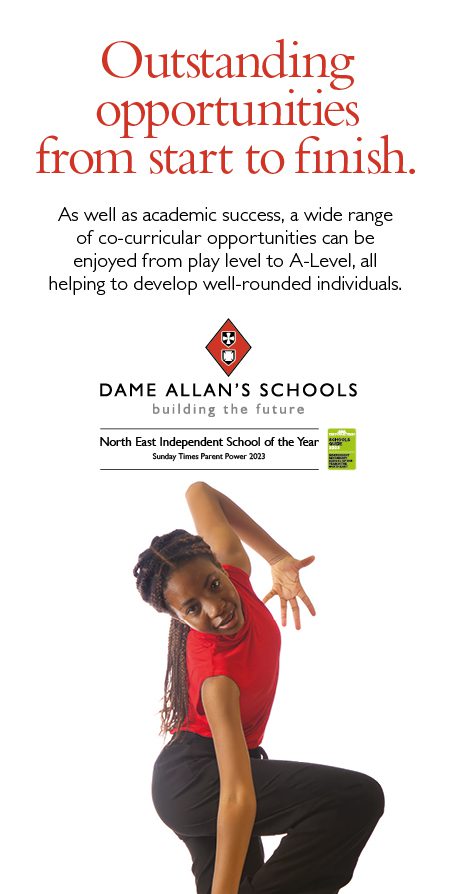By Geoffrey Stanford, Headmaster of Newcastle Royal Grammar School.
Each year I enjoy acting as a UCAS referee for some of our Sixth Formers, helping them navigate their choice of course and university. The most important thing for students to decide is what they want to spend the next few years of their life studying.
Despite being a difficult decision to make, it is fine to change one’s mind – for example, I recently advised a student who started the Sixth Form thinking he wanted to be a doctor but is now studying Classics at Oxford.
During the university application process, students need to consider how far from home they are willing to travel and whether they want to live in a city or attend a campus based university. Another factor is whether they would prefer a course taught more through tutorials or lectures, or even these days with a significant proportion online. Some still see an Oxbridge application as the gold standard but, for many subjects, there are equally good if not better courses elsewhere, though one cannot deny the value of having Oxford or Cambridge on a CV.
Before I moved into teaching, I worked in finance and distinctly remember a German colleague being surprised that I have a Classics degree. In Germany, he said, if you wanted a business career you needed a business degree. It is still the case in the UK that your choice of degree does not define your future career but it is notable that many of the leading degree choices increasingly are vocation related. There will be a number of factors driving this including the changing graduate labour market with employers increasingly expressing the need for a more skills based graduate intake. Similarly, universities are becoming more market driven with fee paying clients looking for a tangible return on their investment. That said, government initiatives pushing STEM degrees should not underestimate the cultural capital of the humanities or economic value of the creative sector and one should not forget the wider importance of scholarship in its own right.
Over the next five years, UCAS anticipate that university applications may increase by a third to reach 1million. This is due to an approaching demographic bulge along with anticipation of wider participation. Meanwhile, the number of international candidates may be only slightly tempered by visa restrictions and a decline in applicants from countries’ like Nigeria where economies are struggling. With UK university places likely to become more competitive over the next few years, some students will look instead at the option of studying abroad.
An alternative to the traditional university route that young people would be well advised to consider would be a degree apprenticeship. I was particularly struck by this when visiting the Dyson Institute of Technology recently, which has been fully accredited as a university in its own right and takes fifty apprentices each year. This route allows students to study for a degree while also gaining significant experience in the workplace that will likely see them far more employable later. At a time when the cost of student loans has become so much more expensive, there is also a significant financial advantage of earning a salary rather than getting into debt. However, relatively few employers have the scale to be able to offer degree apprenticeships so there are not nearly enough places available meaning that it can be as competitive to secure a place as applying to a top university.
For many, a university degree is still likely to continue to be seen as the passport to a future career and, particularly for those who have been academically successful, there is likely to be a higher opportunity cost of not following this route. However, employers are getting better at delivering workplace training and continuing with academia is not right for everyone. Indeed, a number of students that I have taught have chosen to move straight into the workplace with considerable entrepreneurial success. I am always fascinated by the variety of what our alumni go on to do and this is perhaps why I so enjoy the responsibility of mentoring our young people as they make decisions about their future.
www.rgs.newcastle.sch.uk

